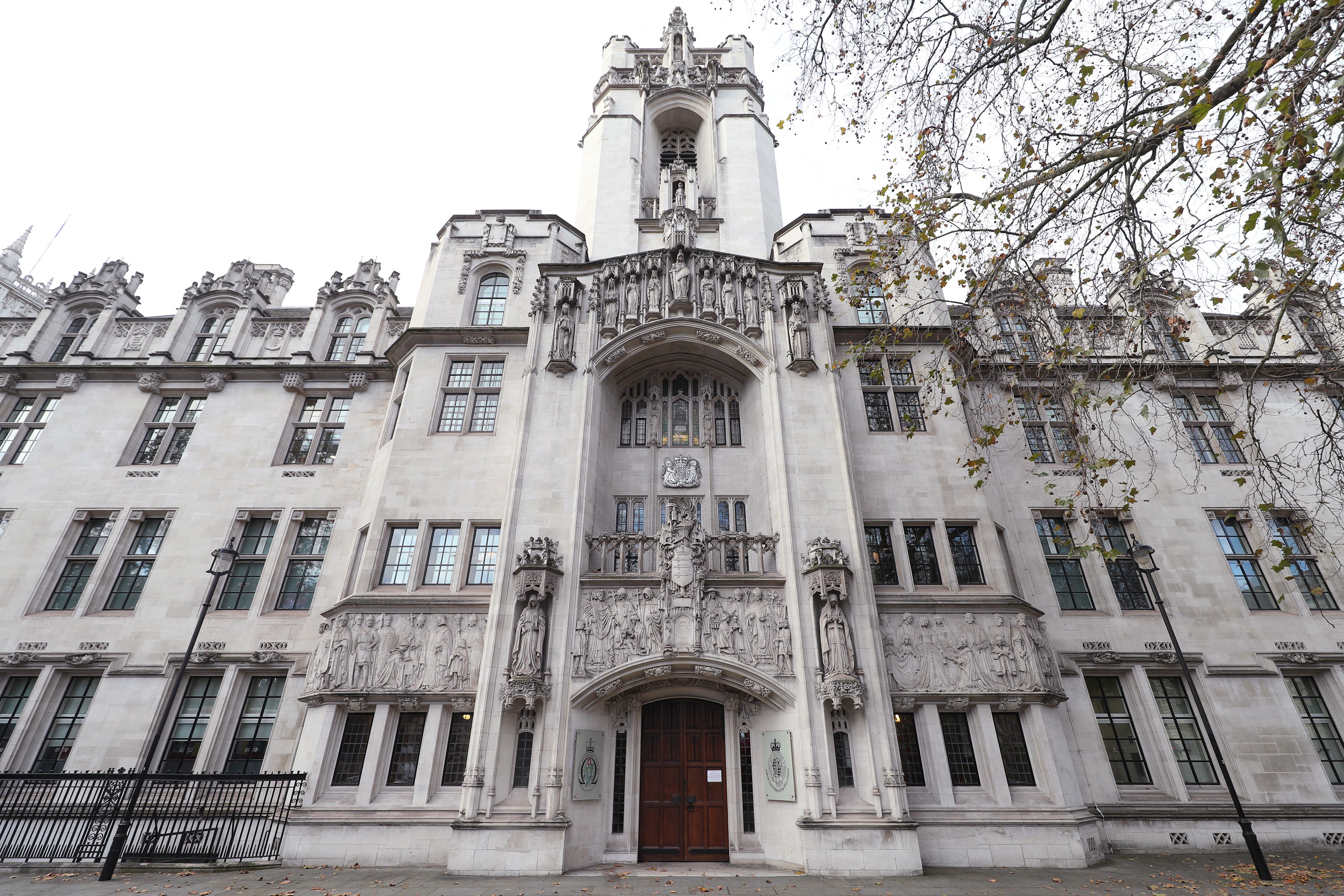NI protocol ‘shifts the position’ of region compared to rest of UK, court told
Five Supreme Court justices in London are hearing a challenge to the post-Brexit arrangement designed to avoid a border on the island of Ireland.

The Northern Ireland Protocol “fundamentally shifts the position” of the region compared to the rest of the UK, the Supreme Court has been told.
On Wednesday, the UK’s highest court heard a challenge to the protocol, a post-Brexit arrangement for the area designed to avoid a border on the island of Ireland.
In June 2021, the High Court in Northern Ireland dismissed a legal challenge against the arrangement brought by a collective of unionists and Brexiteers from across the UK, including former first minister Dame Arlene Foster, TUV leader Jim Allister, former Brexit Party MEP Ben Habib and Baroness Kate Hoey.
After a second challenge was dismissed by the Court of Appeal in Northern Ireland in March this year, the group has brought their case to the Supreme Court in London, along with a linked case brought by Belfast pastor Clifford Peeples.
Part of the group’s argument is that Article 6 of the Acts of Unions, which enshrines that no part of the United Kingdom should be treated differently to the rest in respect of trade access, has been breached by the protocol.
On Wednesday, the former attorney general for Northern Ireland John Larkin KC, representing the group of appellants, argued the arrangement is incompatible with the law from 1800 that is “core to the union”.
Mr Larkin said: “The protocol, taken as a whole and when one looks at some of its individual provisions in-depth, undoubtedly conflicts with Article 6 of the Acts of Union and we say this is acknowledged by the respondent.”
The barrister said “Bristol and Belfast are not on the same footing as to trade”, later calling the protocol a “deliberately obfuscatory text, to use that strong term”.
“The protocol is a difficult text and is often far from clear and where it appears to give, closer examination shows it does not give at all,” the barrister added.
Mr Larkin later said that Northern Ireland’s role in the UK was changed by the arrangement, with power going to the EU.
He told the court: “It’s clear that the changes that are affected by the protocol fundamentally shift the position of Northern Ireland in relation to the rest of the United Kingdom.
There is a customs border between Great Britain and Northern Ireland, Northern Ireland is subject to rules made and administered by institutions that are beyond day-to-day parliamentary control and far beyond the control of the Northern Ireland assembly
“There is a customs border between Great Britain and Northern Ireland, Northern Ireland is subject to rules made and administered by institutions that are beyond day-to-day parliamentary control and far beyond the control of the Northern Ireland assembly.
“Of course, it would have been much more politically dramatic to have conferred a part of laws over Northern Ireland to the Oireachtas in Dublin rather than to the EU, the constitutional principle is, we say, the same.”
Lawyers on behalf of the Prime Minister, Secretary of State for Northern Ireland and Chancellor of the Duchy of Lancaster have argued that the appeals should be dismissed.
It remains the case that any engagement between the Government and the EU on the terms of exit from the EU are non-justiciable matters
In written submissions, Tony McGleenan KC, for the government bodies, argued that the decision to agree the Brexit withdrawal agreement and protocol is “non-justiciable”, or not suitable for a judge to decide.
He said: “The appellants have repeatedly sought to challenge the very permissibility of the negotiations with the European Union about the terms of exit from the EU and the power to reach agreement on the terms that were agreed.
“It remains the case that any engagement between the Government and the EU on the terms of exit from the EU are non-justiciable matters.
“They relate to the conduct of foreign affairs; and are in the realm of politics, and are in nature entirely unsuited to determination by a court on a judicial review application.”
Mr McGleenan added that the “exclusion of courts from political questions” was well-established.
The barrister said: “The exercise of a power is not immune from review simply by virtue of its prerogative source.
“However, the converse is not true: not all prerogative powers are subject to review simply because they involve the exercise of power.
“The true principle is that whether the exercise of a power is reviewable depends on its subject matter, nature and context. “
He continued: There are no judicial standards by which the court can answer questions related to matters of political judgment.
The hearing before a panel of five Supreme Court justices is due to conclude on Thursday with a decision expected at a later date.
